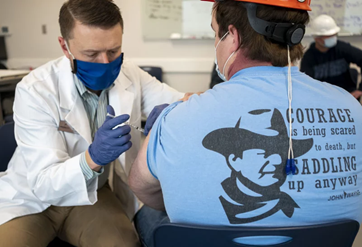|
|
Sen. Romney, Rep. Gallagher Re-Introduce the TRUST Act |
|
On Wednesday, Sen. Mitt Romney (UT) and Rep. Mike Gallagher (WI) introduced the “Time to Rescue United States’ Trusts” (TRUST) Act as stand alone bills in the U.S. Senate and House (S.1295 and H.R. 2575), reviving a threat to the retirement security of hundreds of millions of Americans.
The legislation paves the way for cuts to Social Security and Medicare by establishing so-called “Rescue Committees” charged with recommending changes to the Social Security, Medicare and Highway Trust Funds in the name of “long-term solvency.” The committees are not required to conduct any public hearings; their recommendations could not be amended by the full House or Senate; and the recommendations must receive an up or down vote on the House and Senate floor. There are no limits to what could be recommended, including benefit cuts, changes to the eligibility age, means testing of benefits, or higher taxes on working Americans.
Senator Romney first introduced this legislation in 2019 and offered an amendment in support of the concept during a debate on the Senate Budget Resolution earlier this year. The Senate voted 71-29 in favor of that amendment but it was dropped from the final version of the bill. Since then, several senators have told Alliance activists that they would not vote in favor of the TRUST Act if it comes for a vote again.
“The Alliance strongly opposes the TRUST ACT. Retirees have earned their Social Security and Medicare benefits over a lifetime of hard work and we will fight tooth and nail against any scheme to cut or weaken them,” said Richard Fiesta, Executive Director of the Alliance. “Every Senator and member of Congress must reject this bill and any future bills or amendments that aim to slash these essential programs. We will make this clear to all members of Congress in the coming weeks and months.” |
|
Rural Seniors’ Lower Vaccination Rates Signal an Urban-Rural Divide |
|
Among people 65 years old or older, urban counties' vaccination rates outpace rural ones in all but seven states for which there's complete data, according to NPR. Nebraska, Massachusetts and Louisiana have the largest gaps.
Similar disparities in vaccination rates may be emerging among other age groups. Since the end of March, three-quarters of states have seen urban vaccination rates for all ages grow slightly faster than rural rates. |
|
|
A pharmacist administers a COVID-19 vaccine to a worker at a processing plant in Arkansas City, Kan., on March 5.
|
|
Experts say the reasons for the gaps are likely a mixture of hesitancy, access and the impact of misinformation from some politicians and media outlets. Rural Americans are 11 percentage points more likely than city-dwellers to say they will definitely not get a COVID-19 vaccine, according to recent Kaiser Family Foundation polling. |
|
Individuals in rural areas tend to be more conservative, and many conservatives are less likely to vaccinate, according to Timothy Callaghan, a health policy researcher from Texas A&M University's Southwest Rural Health Research Center. Research shows people living in rural communities are also significantly less likely to take preventive measures against COVID-19, including wearing face masks and avoiding restaurant dining.
Other factors that explain the divide include a shortage of health care providers in rural areas, poor transportation options and language barriers among migrant workers.
“We cannot defeat the coronavirus until the entire country reaches herd immunity,” said Robert Roach, Jr., President of the Alliance. “Leaders and trusted local health care providers need to make sure everyone has the facts about the vaccine, a chance to have their questions answered, and a simple and convenient way to get vaccinated.” |
|
CFPB Offers Tips for Seniors Seeking a Financial Adviser |
|
Recognizing both the importance of financial advisers and the difficulty in identifying a competent and trustworthy one, the Consumer Financial Protection Bureau has published a new guide called Know your financial adviser.
Financial planning for older adults is complicated and should encompass estate planning, income tax laws, savings, pension and Social Security earnings, and investments. The guide can help seniors ask the right questions and ensure that the adviser they hire has the client’s best interest at heart, not their own.
“The fact is that some financial advisers’ titles and credentials require advanced coursework and passing tough exams, but not all,” said Joseph Peters, Jr., Secretary-Treasurer of the Alliance. “The CFPB guide will definitely help seniors make wise choices about their financial future.”
When interviewing a financial adviser, the CFPB recommends asking about their level of training, the ethical standards of their training, and whether their financial title is accredited. Seniors should also be able to file a complaint easily with the organization that issued an advisor's credentials, and that organization should discipline or ban members who don’t follow the rules. |
|
KHN: From Rotten Teeth to Advanced Cancer, Patients Feel the Effects of Treatment Delays By Bruce Alpert, Kaiser Health News |
|
With medical visits picking up again among patients vaccinated against COVID-19, health providers are starting to see the consequences of a year of pandemic-delayed preventive and emergency care as they find more advanced cancer and rotting and damaged teeth, among other ailments. |
|
|
Dr. Despina Markogiannakis examines a patient at her dental practice in Chevy Chase, MD. Markogiannakis says she has noticed an increase in patients grinding or clenching their teeth, conditions likely caused by pandemic-related stress. |
|
Dr. Brian Rah, chair of the cardiology department at Montana’s Billings Clinic, was confused in the early days of the covid pandemic. Why the sudden drop in heart attack patients at the Billings Clinic? And why did some who did come arrive hours after first feeling chest pains? Two patients, both of whom suffered greater |
|
heart damage by delaying care, provided what came to be typical answers. One said he was afraid of contracting covid by going to the hospital. The other patient went to the emergency room in the morning, left after finding it too crowded, and then returned that night when he figured there would be fewer patients — and a lower risk of catching covid.
“For a heart attack patient, the first hour is known as the golden hour,” Rah said. After that, the likelihood of death or a lifelong reduction in activities and health increases, he said.
Dr. JP Valin, executive vice president and chief clinical officer at SCL Health of Colorado and Montana, said he is “kept awake at night” by delays in important medical tests. “People put off routine breast examinations, and there are going to be some cancers hiding that are not going to be identified, potentially delaying intervention,” he said.
|
|
Thanks for reading. Every day, we're fighting to lower prescription drug prices and protect retirees' earned benefits and health care. But we can't do it without your help. Please support our work by donating below. |
|
|
|
|
Alliance for Retired Americans | 815 16th Street, NW | Washington, DC 20006 | www.retiredamericans.org



